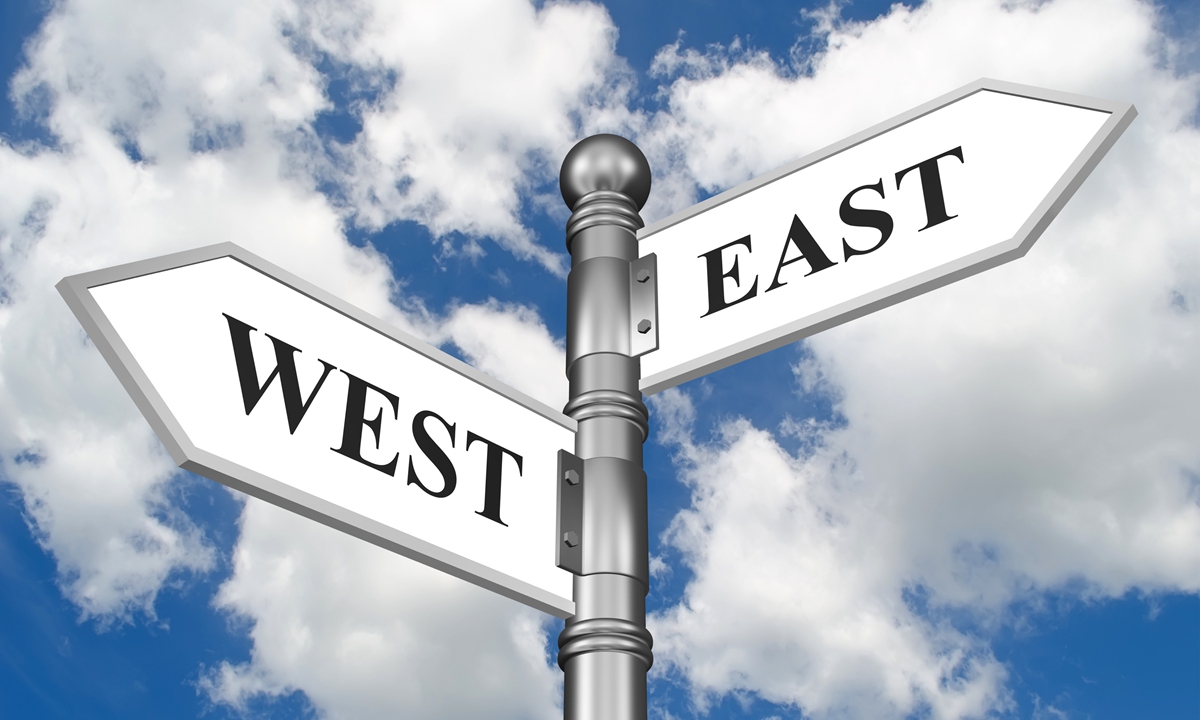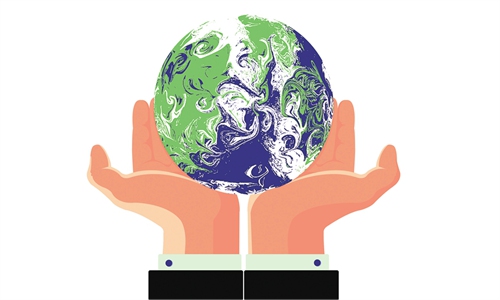
Photo: IC
As the trend "rise of the East, decline of the West" grows clearer, in the face of collective development of emerging economies, the West is increasingly anxious about its global position. They fear that their dominative status in global affairs will be weakened or somewhat replaced. One article entitled "The Leaderless World" published on The Atlantic magazine on Tuesday demonstrates the West's acknowledgement of its collective decline.
Since the 2008 financial crisis, the various crises and contradictions within the West have burst out, impacting Westerners' confidence in their system. In recent years, the discussion about Western democracy and values being threatened has increased exponentially. This to a great extent is originated from the already deep crises within the Western countries. Some think their system could further collapse.
Against this backdrop, some in the West have thought about uniting with others to cope with the situation. They hope this can help them keep their hegemony. However, not all in the West are of the same mind. Although they may want to unite as one, their domestic problems have prevented them from providing enough resources - apart from their lip service.
As a result, we can see many countries say much but do little. Many Western countries' initiatives have become empty slogans. Their concerns are keeping them from completely engaging in their global governance.
Besides, Western countries are not getting along with each other. For example, the recent AUKUS spat and the long-standing disputes between France and Britain are clear signs of decay. This has been an obstacle for the West to voice same words or conduct same moves.
Currently, there is no leader in the West who can lead the way. Although US President Joe Biden has been emphasizing on rebuilding US leadership, he is actually facing various obstacles both domestically and internationally. It is not known how deep Biden's desire to do so is. He needs to consider the price he could have to pay within the US. This is why The Atlantic article elaborated, "The American president seems to want to make decisions in the US' selfish strategic interest, but without the consequences that come with doing so."
The lack of leadership in the West stems not only from the constraints of domestic problems and contradictions, but also from the absence of an authoritative strategist. Western leaders now are more of politicians who are looking out for their own interests or the interests of their own parties. The West needs a strong leader. But Western elites dislike the politicians constantly being elected. This reflects the West's political dilemma.
This is not a problem of any one country, but the entire West. When they reach a certain stage of development, they will face the concentrated outbreak of contradictions and crises, and their own flaws may magnify this problem infinitely. This kind of crisis cannot be solved by short-term institutional or personnel adjustment. It takes a long-term process.
The Atlantic magazine wrote that, "The reality is that the G20 - whose attendees include China, Russia, India, and Saudi Arabia - has replaced the G7 as the forum of real global power. But the G7 is not being used as a kind of pre-meeting of like-minded democracies, a forum to agree on goals and strategy. Instead, it is a place to stitch up defense deals, row over sausages, and pretend that the old world still exists."
This reflects a decline in Western leadership accompanied by a loss of moral appeal. If this trend continues, there are two possible outcomes: One is the exacerbation of the West's decline as a whole. This will lead to the great crisis of the Western world and civilization. There are already some hints of this possibility, and the key is whether their own governance can reflect on their current problems thoroughly and effectively. Another possibility is that they reform themselves to alleviate the problem, or prolong the cycle that may affect the West before it reaches the critical point.
But in any case, the possibility of the West regaining its old-times global dominance through self-repair is low. However, the West has failed to recognize or accept this reality. Their perception of themselves clearly needs a complete introspection. However, Western politicians' manipulation that passes on their own development problems to other countries will only delay the progress to solve their own problems. It will thus make it more difficult to solve those problems.
Although there are some introspective voices in the West, they are not powerful enough to bring about real changes. The West, as a whole, is still in a state of maladjustment and anxiety. It is hard to say when, or if, the West will be able to rise out of the current crisis.
The author is an assistant research fellow at the China Institute of International Studies. opinion@globaltimes.com.cn

